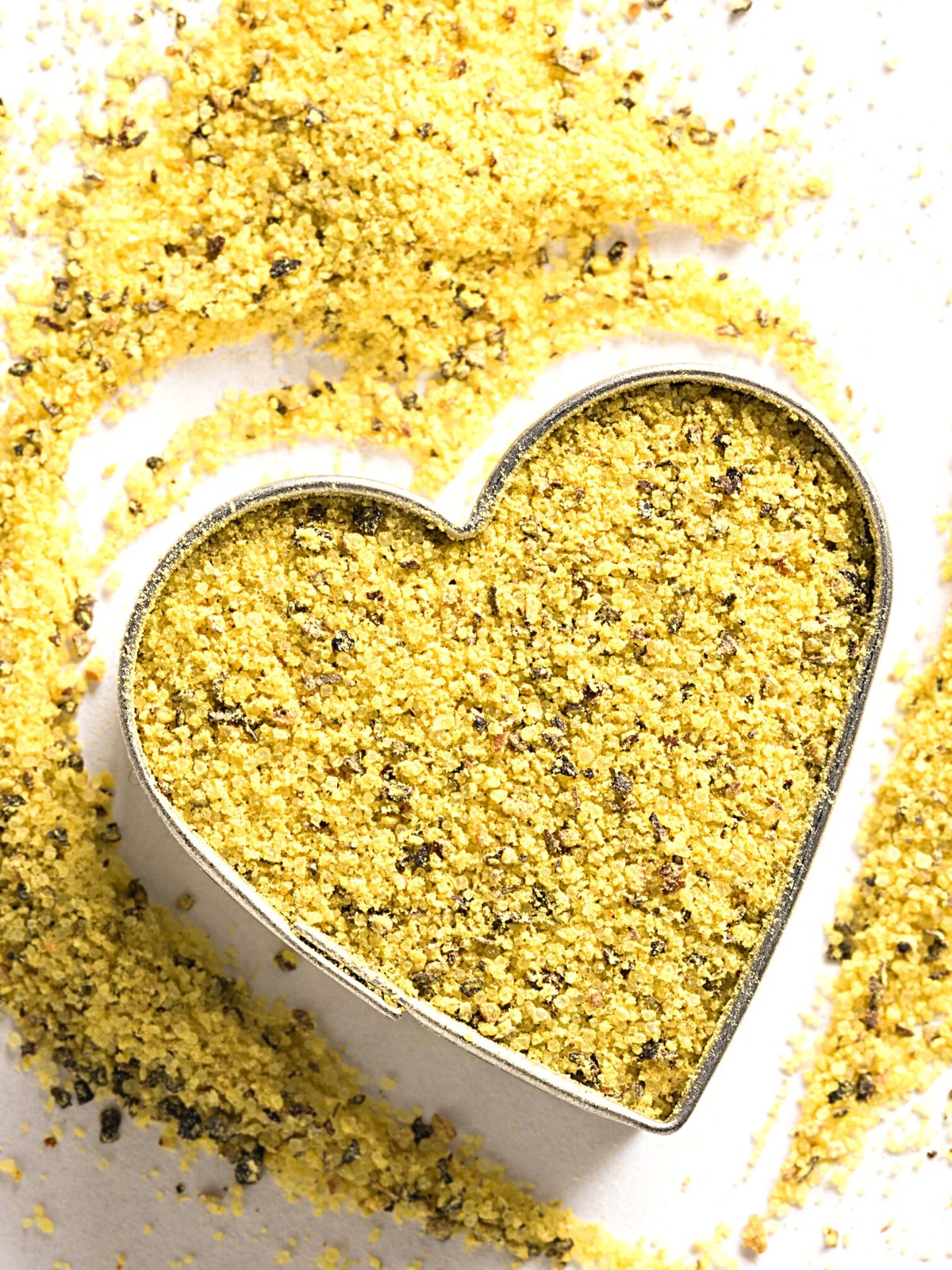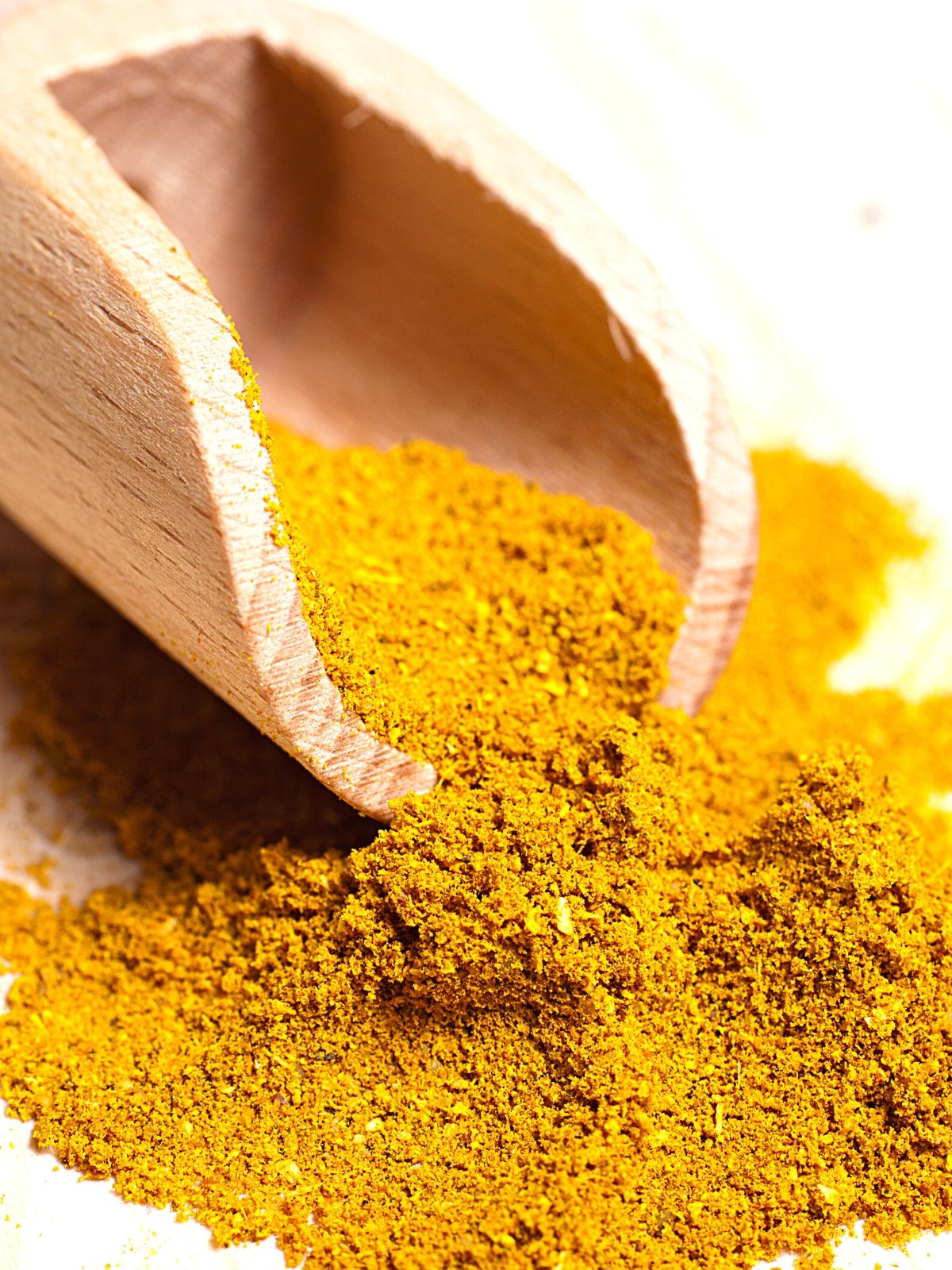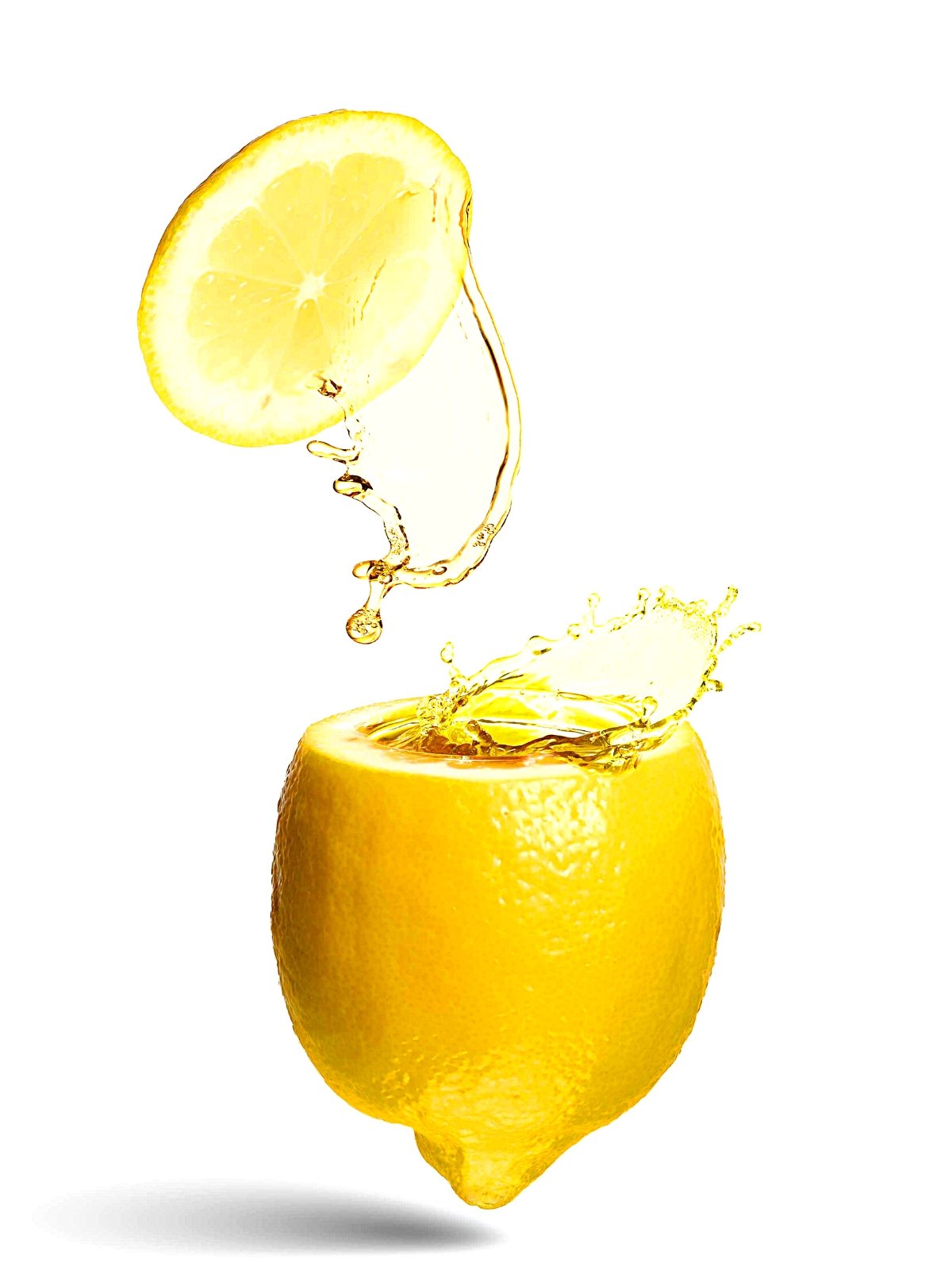There are times when we don’t have access to certain ingredients and have to come up with creative substitutes and since lemon pepper is a versatile addition to many dishes, there are plenty of options out there if you’re looking for an alternative. Choose your preferred lemon pepper substitute.

Jump to:
What is Lemon Pepper Seasoning?
Lemon pepper seasoning has a unique combination of flavors that work together in perfect harmony. On its own, the spice from the black pepper is quite intense but when paired with the tartness of the lemon, it creates a balanced flavor profile that will make any dish sing.
It pairs particularly well with seafood dishes like grilled salmon or steamed mussels and can also be used as a finishing touch to salads or roasted vegetables.

List of Best Lemon Pepper Substitutes
If you’re not able to find lemon pepper seasoning for whatever reason, there are several substitutes that will give your meals an equally delicious flavor boost.
1. Lemon Thyme
If you love the combination of citrusy and savory flavors, then lemon thyme is perfect for you. It has the same lemony taste as lemon pepper seasoning but also an added earthiness from the thyme.
Lemon thyme is great in soups, salads, fish dishes, or even roasted vegetables. You can use it just as you would use lemon pepper seasoning—sprinkle it over whatever dish you’re making right before serving.

2. Lemon Zest
The zest of citrus fruit can be used as a substitute for lemon pepper seasoning—it offers a similar flavor without any added salt or sugar.
The best way to use this substitute is to combine it with other herbs and spices like oregano, basil, or garlic powder. This will give the dish some more depth of flavor while still getting that nice citrusy taste from the zest. Great on top of this zucchini and feta pasta!

3. Lemon Curry Powder
This one might sound a little strange but it works surprisingly well! Lemon curry powder combines the traditional spices found in curry powder with a hint of citrus flavor from the lemons.
It packs quite a punch so I recommend starting out small when using this substitute—just a pinch or two should do the trick! You can use it to make curries, marinades for meat dishes, or even sprinkle over popcorn for an interesting twist on movie night snacks!

4. Shichimi Togarashi
This Japanese spice blend is one of my favorite alternatives to lemon pepper. It contains seven ingredients—including chili pepper flakes, sesame seeds, orange peel, ground ginger, seaweed flakes, poppy seed, and hemp seed—which combine to create an incredibly flavorful combination that has a bit of heat but isn't overly spicy.
This blend works particularly well with fish or seafood dishes since it adds a hint of sweetness without overpowering the natural flavor of the dish.

5. Garlic Pepper
This seasoning blend combines two pantry staples—garlic powder and black pepper—into one powerful punch.
Unlike traditional garlic powder, garlic pepper also contains coarsely ground peppers, giving it an extra kick you won't find with regular garlic powder alone. This blend works great on roasted veggies, grilled meats, and all kinds of other savory dishes that could use a little extra oomph!
6. Orange Pepper seasoning
If you're looking for something fruity yet still savory, then this blend may be just what you need! Orange pepper seasoning contains roasted orange peel (obviously), black pepper, salt, and other spices like paprika and onion powder that work together to create a bright citrusy flavor with a hint of heat from the black pepper.
This blend tastes fantastic on salads or grilled fish—you can even add it to desserts like muffins or cakes for an unexpected twist!

7. Lemon Juice
Finally, there’s always good old-fashioned lemon juice! While not quite as flavorful as other substitutes listed above (or actual lemon pepper mix), using fresh lemon juice can still give your dish that subtle hint of citrus that makes all the difference. Just add a squeeze of fresh lemon juice at the end of cooking time—it will really brighten up whatever dish you’re making!

People Also Ask [FAQs]
Does Lemon Pepper Have Salt?
Yes, lemon pepper seasoning usually contains salt. Making lemon pepper seasoning at home can help you reduce the salt content as you will have more control over the ingredients. Alternatively, if buying a store-bought mix, look for one labeled 'low sodium'.
Does Lemon Pepper Seasoning Go Bad?
Lemon pepper seasoning will start to lose its potency after about six months and should be used within two years for the best flavor. However, if kept in a cool, dry place away from direct sunlight it can last even longer.
Is Lemon Pepper Seasoning Keto Friendly?
Yes, homemade Lemon Pepper seasoning is keto-friendly since it contains no preservatives and is low in carbs.
Wrap Up: Lemon Pepper Substitute
- Experiment with different combinations of herbs and spices until you find the perfect blend for your dish! With these options in mind, it'll be easy to substitute lemon pepper if needed or else you can try to make your own homemade seasoning.
- The finished homemade lemon pepper seasoning is a tasty and cost-effective alternative to store-bought varieties, and with just a few simple steps you can easily create your own special blend of flavors at home. Whether used as a marinade, topping, or rub, this zesty seasoning is sure to add a delicious twist to any dish!
🍽️ Recipe
Homemade Lemon Pepper Seasoning
Ingredients
- 10 lemons peeled and sliced (organic and unwaxed)
- 2 teaspoon Black Peppercorns
- ½ teaspoon Sea Salt
- ¼ teaspoon Powdered Sugar
- ½ teaspoon Onion powder
- ¼ teaspoon citric acid optional
Instructions
- To start off with, preheat the oven to 150 degrees celsius and carefully peel away the yellow zest of the lemons with a paring knife or a good peeler. When slicing a lemon, ensure to keep as much of the white pith intact as possible.
- Place the peeled lemon onto an oven tray covered with foil and bake for 55 minutes until it is slightly browned and crisp.
- Afterward, remove it from the oven and allow it to cool before blending it into a fine powder along with the black peppercorns.
- Once this is done mix in the sea salt, powdered sugar, onion powder, and citric acid (if using), stirring thoroughly for even distribution. And that's it! Your Homemade Lemon Pepper Seasoning is ready to use – give your dishes an extra zest!
Notes
- When making your own Homemade Lemon Pepper Seasoning, it's important to ensure you select organic, unwaxed lemons. This is because conventionally grown lemons often have a waxy coating on them that can contain chemicals and pesticides which you don't want in your seasoning.
- Additionally, make sure to avoid slicing too close to the white pith as it can make your seasoning bitter.


















Leave a Comment